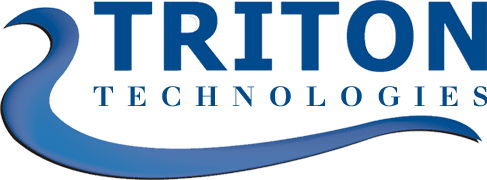Data privacy and compliance are essential for businesses in every sector, particularly as data breaches become more frequent and regulations tighten. Organizations must prioritize data security to effectively protect sensitive information and maintain consumer trust. With the growing complexity of data management, understanding the specific compliance requirements relevant to each industry is crucial. Companies that neglect these responsibilities risk significant penalties and reputational damage, making it imperative to adopt a proactive approach to data privacy.
This article delves into the complexities of data privacy compliance, examining its implications across various industries—including cannabis, healthcare, energy, finance, government, hospitality, insurance, legal, manufacturing, and non-profit. We will highlight best practices for effective privacy management, enabling organizations to safeguard data while adhering to regulatory requirements. By exploring tailored strategies for each sector, we aim to provide actionable insights that help organizations navigate the intricate landscape of data privacy and ensure ongoing compliance in an ever-evolving digital world.
The Importance of Data Privacy and Compliance
Data privacy and compliance refer to the processes and regulations governing how organizations collect, store, and manage personal information. These practices are essential for safeguarding consumer trust, maintaining a competitive advantage, and adhering to legal requirements. Failing to comply with data privacy regulations can result in severe penalties, loss of customer trust, and reputational damage.
Key Regulations Impacting Data Privacy
Several regulations have emerged globally to enhance data privacy and compliance. Notable examples include the General Data Protection Regulation (GDPR), which mandates strict guidelines for data handling in the European Union; the Health Insurance Portability and Accountability Act (HIPAA), which protects sensitive patient information in the healthcare sector; and the California Consumer Privacy Act (CCPA), which grants consumers rights over their personal information. Understanding these regulations is crucial for businesses operating in various sectors, as non-compliance can lead to significant legal repercussions.
Explore our Managed Service Offerings
Worcester’s Top Managed Service Provider
Data Privacy and Compliance Across Different Industries
Energy Sector
The energy sector increasingly relies on digital technologies, making data privacy compliance vital. Organizations in this field manage sensitive operational data, customer information, and compliance records. A breach could lead to not only financial losses but also safety risks. Energy companies must focus on implementing strong cybersecurity measures to safeguard sensitive data while also conducting regular training sessions for employees to enhance awareness of data privacy protocols and phishing threats. To learn more about how technology supports data privacy in the energy sector, explore our Energy IT Solution Offerings.
Financial Services
The financial services industry is a prime target for cybercriminals due to the wealth of personal and financial data it holds. Compliance with regulations such as the Gramm-Leach-Bliley Act (GLBA) is essential for protecting customer information. Organizations must establish a culture of security by implementing multi-factor authentication for customer accounts and performing regular risk assessments to identify and mitigate potential vulnerabilities. For customized solutions that enhance security and compliance, check out our IT Solutions for Financial Services.
Government
Government agencies handle vast amounts of personal data, making data privacy and compliance essential for maintaining public trust. Regulations like the Federal Information Security Management Act (FISMA) guide data security practices. Governments must adopt a structured approach to data classification, categorizing data based on sensitivity and applying appropriate security measures accordingly. Additionally, developing comprehensive incident response plans can ensure quick and effective reactions to potential data breaches.
Hospitality
In the hospitality industry, businesses collect sensitive customer information, including payment details and personal preferences. Compliance with data protection regulations is crucial for maintaining customer trust. Hospitality organizations should prioritize secure payment processing by using encryption and ensuring that only necessary data is collected for transactions and guest services. Building strong relationships with customers hinges on transparency about how their information will be used and protected. Check out our Hospitality IT Solutions and Services and learn how you can ensure compliance.
Insurance
Insurance companies manage sensitive personal and financial data, making compliance with regulations such as HIPAA and the National Association of Insurance Commissioners (NAIC) essential. Insurers need to focus on data encryption to protect customer information from unauthorized access. Additionally, they should carefully assess any third-party vendors that handle sensitive data to ensure they also meet privacy standards. Check out our Insurance IT Solutions to guarantee adherence to regulatory requirements.
Legal
Law firms and legal professionals manage sensitive client information, making data privacy compliance critical. The American Bar Association (ABA) Model Rules of Professional Conduct outlines obligations regarding client confidentiality. Legal organizations must ensure that they use secure communication channels for sharing sensitive information. Regular training on maintaining confidentiality and implementing robust data protection measures can further enhance compliance.
Discover our IT Solutions for Your Industry
Worcester’s Top Managed Service Provider
Manufacturing
In the manufacturing sector, data privacy compliance is vital for protecting intellectual property and employee information. With the rise of Industry 4.0, organizations are increasingly reliant on data analytics and IoT devices. Manufacturers must implement strong access controls to ensure that only authorized personnel have access to sensitive data. Additionally, developing and testing incident response plans for potential data breaches is crucial for minimizing damage.
Non-Profit Organizations
Non-profits often handle sensitive donor and beneficiary information, making data privacy compliance essential for maintaining trust and fulfilling legal obligations. Non-profit organizations should be transparent about how they collect and use donor data while also conducting regular audits to assess compliance with data privacy regulations. Building a culture of accountability within the organization can significantly bolster data protection efforts.
Best Practices for Achieving Data Privacy and Compliance
Regardless of the industry, several overarching best practices can help organizations enhance their data privacy and compliance efforts. Developing a comprehensive data privacy policy that clearly outlines how your organization collects, stores, and uses data is essential. This policy should be communicated to all employees to ensure everyone understands their responsibilities.
Investing in regular training and awareness programs can further bolster compliance efforts, encouraging a culture of data protection within the organization. Utilizing advanced technology solutions, such as encryption and access controls, will provide robust protection for sensitive information.
It is also crucial to regularly review and update policies to stay informed about evolving data privacy regulations. Consulting with legal and compliance professionals can help ensure that your organization meets all regulatory requirements and addresses potential risks effectively.
Discover Our Compliance Management Solutions
Worcester’s Leading Provider of Compliance Services
How Triton Technologies Can Help
At Triton Technologies, we understand the complexities of data privacy compliance across various industries. Our team of experts specializes in helping organizations navigate the regulatory landscape and implement effective data protection strategies tailored to their specific needs.
We offer comprehensive services that include:
- Risk Assessments: We conduct thorough assessments to identify vulnerabilities in your current data management practices, helping you understand potential risks and areas for improvement.
- Compliance Framework Development: Triton Technologies works with you to develop a robust compliance framework that aligns with industry regulations such as GDPR, HIPAA, and CCPA. We ensure that your policies and procedures reflect best practices in data privacy.
- Training Programs: We provide customized training programs for your employees to enhance their understanding of data privacy regulations and their roles in maintaining compliance. Empowering your team with knowledge is key to fostering a culture of security.
- Technology Solutions: Our technology solutions include implementing advanced cybersecurity measures, such as encryption and access controls, to protect sensitive data. We help you leverage the latest tools and technologies to bolster your defenses.
- Ongoing Support and Monitoring: Data privacy compliance is not a one-time effort. Triton Technologies offers ongoing support to monitor your compliance status, conduct regular audits, and provide updates on regulatory changes that may impact your organization.
By partnering with Triton Technologies, you can ensure that your organization not only complies with data privacy regulations but also builds a strong foundation of trust with your customers and stakeholders. Together, we can navigate the challenges of data privacy compliance and safeguard your sensitive information.
Data privacy and compliance are critical components of any successful business strategy. As organizations navigate an increasingly complex regulatory landscape, understanding the specific requirements for their industry is essential. By prioritizing data security and privacy compliance, businesses can protect sensitive information, maintain consumer trust, and ensure long-term success. Whether in cannabis, healthcare, energy, finance, government, hospitality, insurance, legal, manufacturing, or non-profit sectors, implementing effective privacy management compliance practices is key to thriving in today’s data-driven world.



